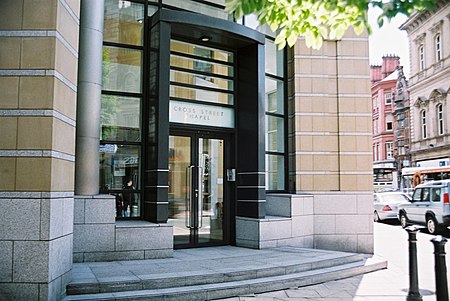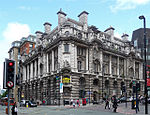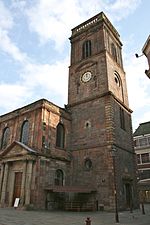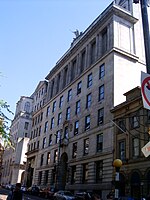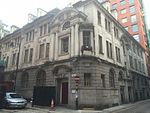The 1996 Manchester bombing was an attack carried out by the Provisional Irish Republican Army (IRA) on Saturday, 15 June 1996. The IRA detonated a 1,500-kilogram (3,300 lb) lorry bomb on Corporation Street in the centre of Manchester, England. It was the biggest bomb detonated in Great Britain since the Second World War. It targeted the city's infrastructure and economy and caused significant damage, estimated by insurers at £700 million (equivalent to £1.4 billion in 2021), a sum surpassed only by the 1993 Bishopsgate bombing, also by the IRA.At the time, England was hosting the Euro '96 football championships and a Russia vs. Germany match was scheduled to take place in Manchester the following day. The IRA sent telephoned warnings about 90 minutes before the bomb detonated. At least 75,000 people were evacuated, but the bomb squad were unable to defuse the bomb in time. More than 200 people were injured, but there were no fatalities despite the strength of the bomb, which has been largely credited to the rapid response of emergency services in evacuating the city centre.Although Manchester had been targeted by the IRA before, it had not been subjected to an attack on this scale. In February 1996, the IRA had ended its seventeen-month ceasefire with a large truck bomb attack on London's Canary Wharf financial district, though the 3,300-pound bomb of Manchester was three times the size of the Canary Wharf bomb. The Manchester bombing was condemned by the British and Irish governments and U.S. President Bill Clinton. Five days after the blast, the IRA issued a statement from Dublin in which it claimed responsibility, but regretted causing injury to civilians.Several buildings were damaged beyond repair and had to be demolished, while many more were closed for months for structural repairs. Most of the rebuilding work was completed by the end of 1999, at a cost of £1.2 billion, although redevelopment continued until 2005. The perpetrators have not been caught, and although Greater Manchester Police (GMP) had suggested it was unlikely that anyone will be charged in connection with the bombing, a suspect was arrested on 8 September 2022. The bombing has, however, been viewed by some as a "catalyst" for Manchester's mass regeneration, turning it into a modern "powerhouse" city with above-national average economic growth in the 20 years following the bombing.
